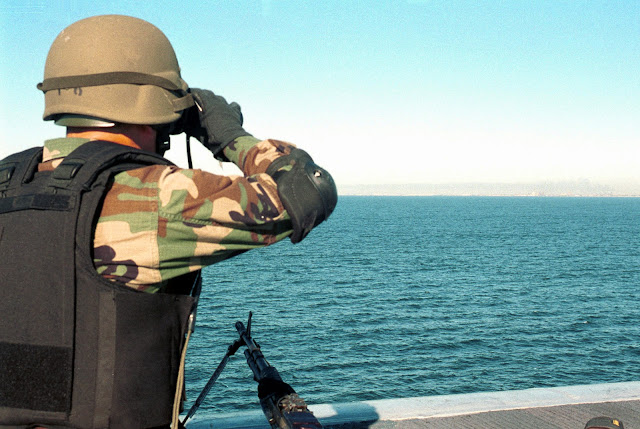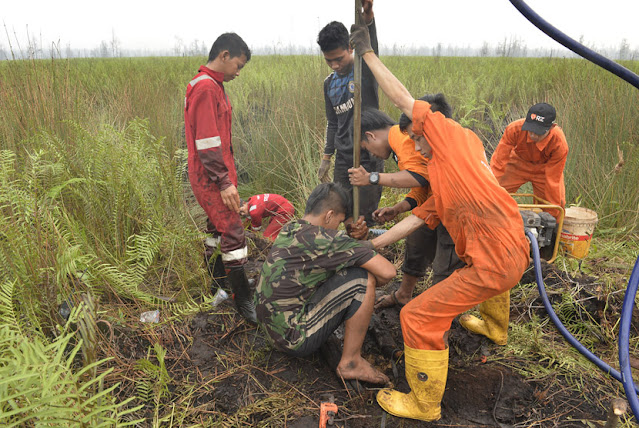Maritime Security Is The Protection Against A Variety Of Threats Such As Piracy And Armed Robbery At Sea
 |
| Maritime Security |
The maritime domain is a vast, continuous medium that serves as a ready and largely unsecured forum for nations, terrorists, criminals, and other non-state actors to pursue their nefarious purposes. Adversaries exploit the seas to smuggle weapons of mass destruction, other dangerous materials, people, or illicit goods; to conduct attacks or facilitate their preparation; or to imperil global economic development and stability. They also mingle with legitimate commerce to hide their activity and evade detection. These transnational threats, which honor no national boundary or jurisdiction, require a fully coordinated and collaborative international response to be defeated.
As the world grows ever more
interdependent, the threat from non-state actor groups that exploit open seas
to undermine international peace and security must be prevented. The growing
use of the seas for illicit trade and piracy, human trafficking, arms
proliferation, natural disasters, environmental crimes, and other illicit
activities presents significant challenges to Maritime
Security. In this environment, effective response requires teamwork by
the entire Federal government and international partners.
A fundamental aspect of Maritime Security is “domain
awareness.” It is a capability that allows decision-makers to understand what
is occurring in the seas, how it affects their security and economy, and how
that might be changed. It requires a comprehensive understanding of the
capabilities, intentions, and motivations of adversaries. It includes knowledge
of the adversary’s capabilities, vulnerabilities, and centers of gravity.
Another element of Maritime Security is the ability to recognize, assess, and respond
rapidly to events that could disrupt the marine transportation system or have
broader economic or national security implications. It is also critical to be
able to assess the impact of an event on other modes of transportation and the
possible effects on communities in impacted areas.
This is an area where technology can
help. Increasingly, ships are being equipped with automated systems that can
interpret data from other vessels, ports, weather conditions and more to
operate the ship more efficiently. The technology could also improve safety for
crew members, reduce the risk of a pirate attack and even help prevent an
incident that would necessitate an emergency evacuation.
The Coast Guard Administration of
Taiwan announced a new project for replacing 23 aging coastal radar stations in
September 2021. The overhaul of radar systems is estimated to enhance the
monitoring capabilities of the country’s coastal radars.


Comments
Post a Comment